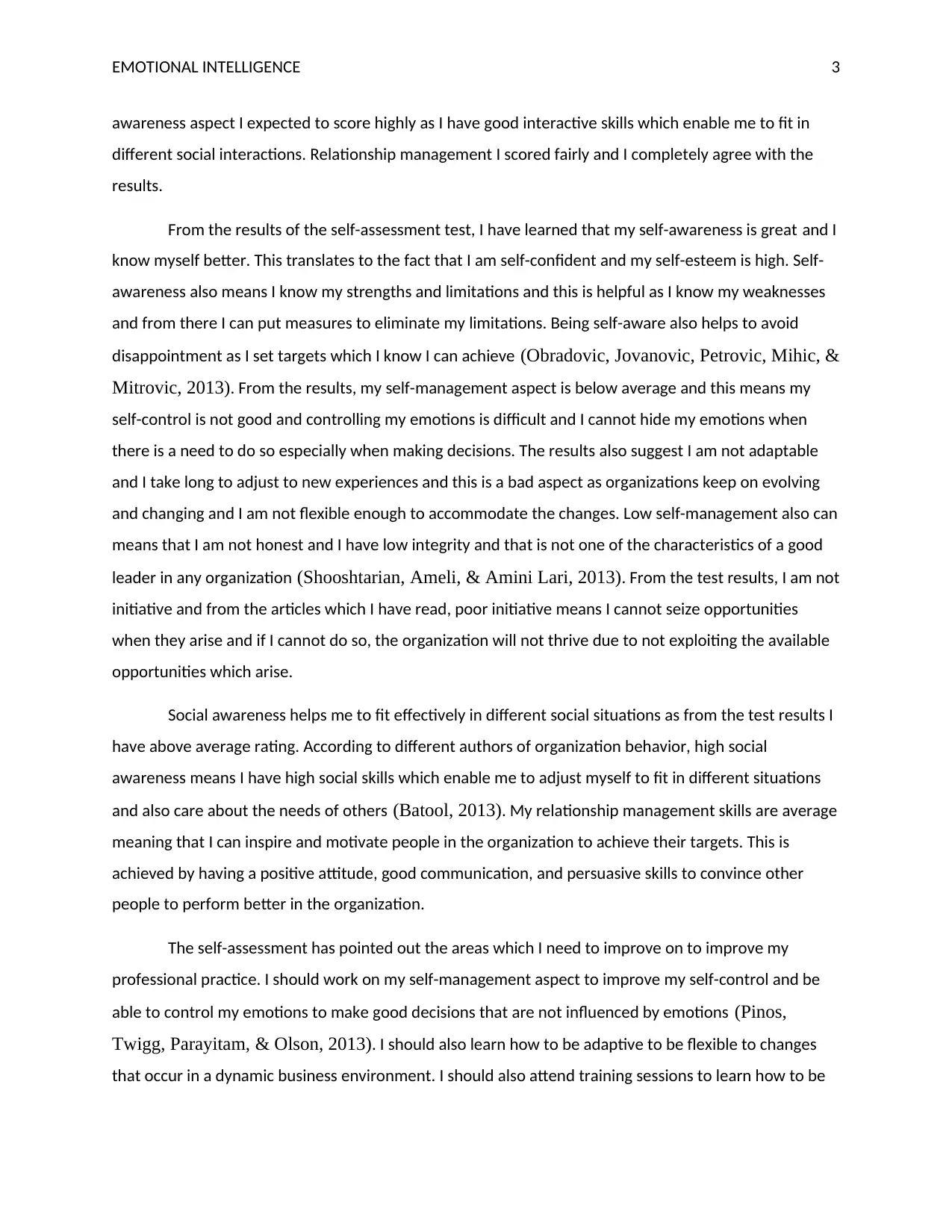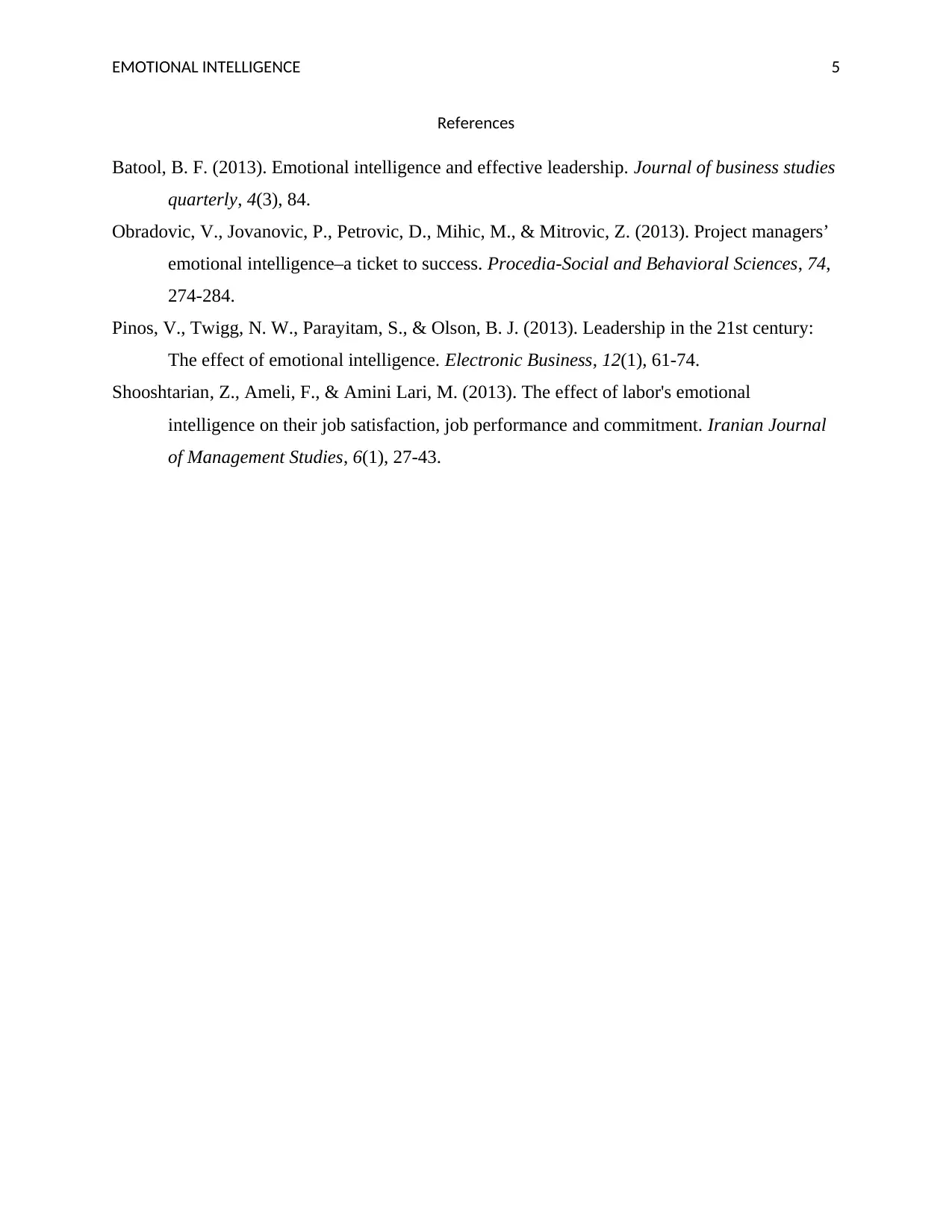Leadership Module: Emotional Intelligence Self-Assessment Reflection
VerifiedAdded on 2022/09/28
|5
|919
|28
Journal and Reflective Writing
AI Summary
This assignment is a reflective journal entry based on a student's emotional intelligence self-assessment. The student analyzes the results of the assessment, which measures self-awareness, self-management, social awareness, and relationship management. The reflection includes the student's agreement or disagreement with the assessment results, their understanding of the strengths and weaknesses revealed, and how these insights relate to their leadership capabilities. The student identifies areas for improvement, particularly in self-management and adaptability, and outlines steps they can take to enhance their emotional intelligence. The paper also references relevant academic sources to support the analysis and conclusions drawn from the self-assessment. The reflective piece highlights the importance of emotional intelligence in personal and professional development, particularly in the context of leadership and organizational success. The student acknowledges the importance of self-awareness and the need to improve in self-management to make better decisions and adapt to changes in a dynamic business environment.
1 out of 5












![[object Object]](/_next/static/media/star-bottom.7253800d.svg)